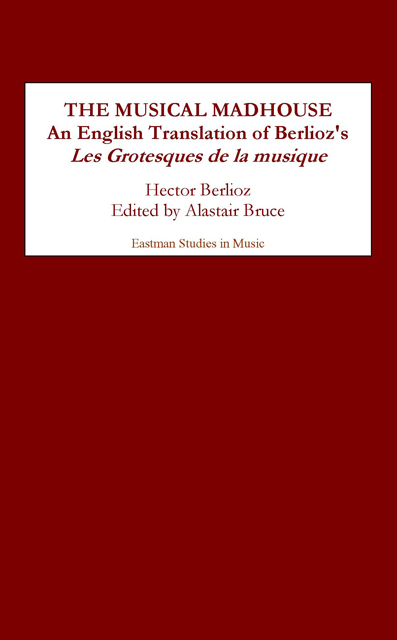The evangelist of the drum
Published online by Cambridge University Press: 21 March 2023
Summary
I have often wondered whether it’s because they’re mad that certain people get involved with music, or whether it’s actually music that has driven them mad. Impartial observation has led me to the conclusion that music is a violent passion, like love, and can undoubtedly make people in its grip seem to lose their wits. But this mental derangement is only temporary, and in no time at all they’re restored to reason; it’s quite possible that this so-called derangement is in reality a sublime exaltation, an exceptional flowering of intelligence and sensibility.
In the case of the genuine lunatics, clearly music is not in any way responsible for their mental disorder, and if they take it into their heads to devote themselves to musical pursuits, it’s because they lack all common sense. Music isn’t to blame for their insanity.
Yet God knows what harm they could do to music if they had the chance. Luckily the public has enough good sense to recognise somebody at once as a lunatic if everything he ever does is designed to prove that he’s the god Jupiter!
But there are others whom it would be an understatement to describe as lacking in intelligence; they have no intelligence at all, for their heads are quite empty, or at least half empty: they are missing either the right or left lobe of their brains, if not both. The reader will have no difficulty in classifying the examples I shall give, and will know how to distinguish the madmen from those who are simply … simple.
… … … … … … … … … …
There was once a splendid musician who was an excellent drummer. Convinced of the superiority of the side drum to all other musical instruments, he wrote a Method for it some ten or twelve years ago, and dedicated his work to Rossini. I was invited to comment on the merit and importance of this Method, and wrote a letter to its author in which I contrived to compliment him greatly on his talent as a performer.
- Type
- Chapter
- Information
- The Musical MadhouseAn English Translation of Berlioz's <i>Les Grotesques de la musique</i>, pp. 19 - 20Publisher: Boydell & BrewerPrint publication year: 2003



